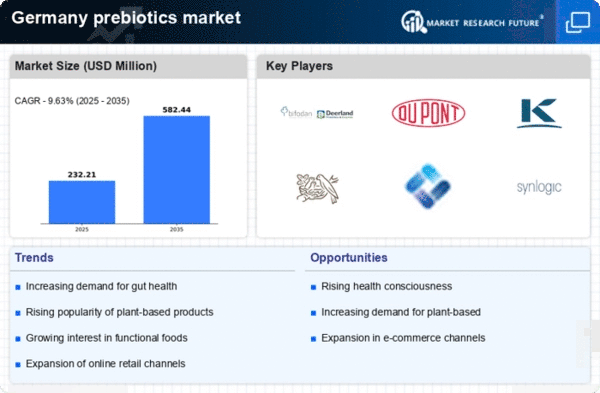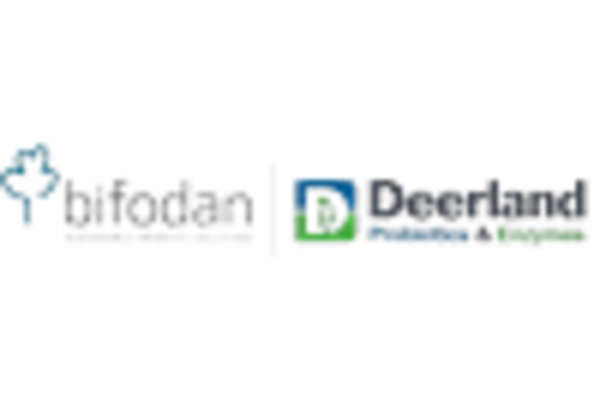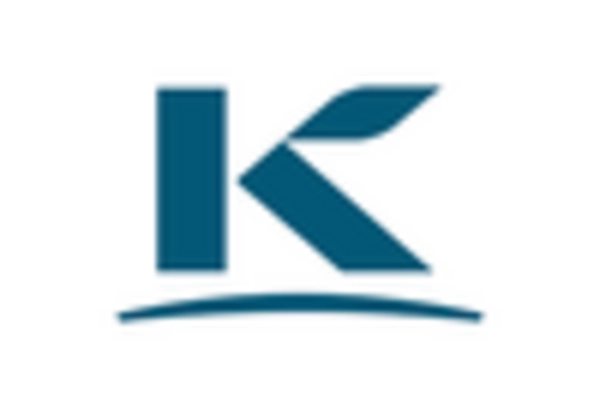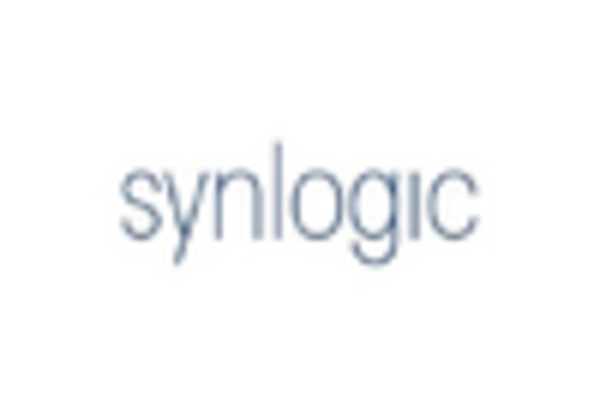Increasing Health Awareness
The growing awareness of health and wellness among consumers in Germany is a pivotal driver for the prebiotics market. As individuals become more informed about the benefits of gut health, there is a noticeable shift towards products that promote digestive wellness. This trend is reflected in the rising sales of functional foods, with the prebiotics market witnessing a growth rate of approximately 8% annually. Consumers are increasingly seeking out prebiotic-rich foods and supplements, which are perceived as essential for maintaining a balanced microbiome. This heightened focus on health is further supported by educational campaigns and initiatives aimed at promoting dietary changes, thereby enhancing the demand for prebiotic products in the market.
Growing Interest in Gut Health
The burgeoning interest in gut health among the German population serves as a significant driver for the prebiotics market. Research increasingly highlights the connection between gut microbiota and overall health, leading consumers to prioritize products that support digestive health. This trend is evident in the rising consumption of prebiotic supplements and functional foods designed to enhance gut flora. The prebiotics market is expected to benefit from this growing awareness, with estimates suggesting that the market could reach a valuation of €300 million by 2026. As consumers become more proactive about their health, the demand for prebiotic products is likely to continue its upward trajectory.
Innovation in Product Development
Innovation plays a crucial role in shaping the prebiotics market in Germany. Manufacturers are actively developing new and diverse prebiotic formulations to cater to the evolving preferences of consumers. This includes the introduction of prebiotic fibers derived from various sources, such as chicory root and inulin, which are gaining popularity due to their health benefits. The market is also witnessing the emergence of novel delivery formats, such as functional beverages and snack bars, which incorporate prebiotics. This innovative approach not only attracts health-conscious consumers but also contributes to the overall growth of the prebiotics market, with projections indicating a potential market value exceeding €500 million by 2027.
Support from Health Professionals
The endorsement of prebiotic products by health professionals is a vital driver for the prebiotics market in Germany. Nutritionists and healthcare providers are increasingly recommending prebiotics as part of a balanced diet, recognizing their role in promoting gut health and overall well-being. This professional support not only enhances consumer confidence but also drives sales in the prebiotics market. As healthcare systems emphasize preventive care and holistic health approaches, the integration of prebiotics into dietary recommendations is likely to grow. This trend could lead to a substantial increase in market penetration, with projections indicating a potential growth rate of 7% annually in the coming years.
Rising Demand for Natural Ingredients
The prebiotics market in Germany is significantly influenced by the increasing consumer preference for natural and organic ingredients. As more individuals seek to avoid artificial additives and preservatives, the demand for naturally sourced prebiotics is on the rise. This trend aligns with the broader movement towards clean label products, where transparency in ingredient sourcing is paramount. Companies are responding by reformulating existing products and launching new ones that emphasize natural prebiotic sources. This shift not only enhances consumer trust but also positions the prebiotics market favorably within the health food sector, potentially leading to a market expansion of around 10% over the next few years.
















